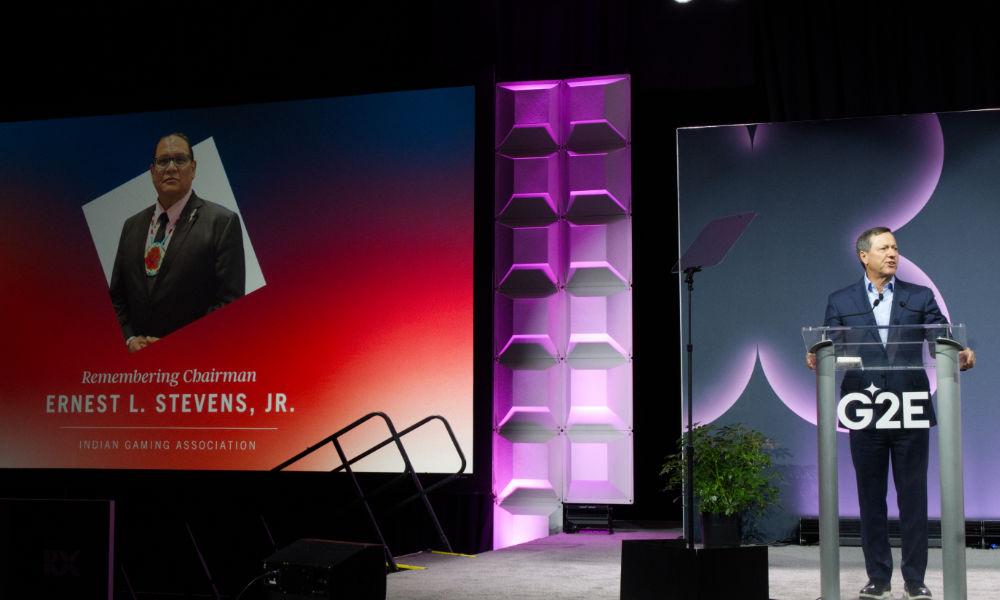American Gaming Association President and CEO Bill Miller usually opens G2E with a keynote address that touches on all the issues affecting the gaming industry. This year, Miller paused before diving into his speech to pay tribute to the Ernie Stevens, chairman of the Indian Gaming Association, who passed away unexpectedly September 26.
“(Ernie) played a key role in forging an effective partnership between tribal and commercial gaming,” Miller said in his address at G2E Tuesday morning in Las Vegas, “that helped spur gaming growth into the thriving nationwide industry that it is. He saw gaming as a driver of economic opportunity and social mobility.”
After paying tribute to Stevens, Miller launched into the main points of his address. He noted that the gaming industry grew by 8 percent in 2024, employs 1.8 million people, and is essential to state budgets from “Oklahoma to Ohio.
“We deliver this impact when our economy is steaming forward and we hold steady when we encounter moments of economic uncertainty,” Miller said.
Nine out ten American, Miller stated, support gambling. But he added the gaming industry is threatened by headwinds, not from those who want to get rid of gambling, but by those who want to mimic its success: prediction markets and sweepstakes.
The fight against those entities, Miller promised, has just begun. He stated that the American Gaming Association has supported the struggle against illegal sweepstakes, with five states banning sweepstakes and 13 delivering cease-and-desist letters to shut them down. The AGA has also urged 50 attorneys general to encourage the Justice Department to fight illicit and illegal gambling.
“They want the opportunity, but they don’t want any of the regulatory compliance,” Miller said of sweepstakes and prediction markets. “Many of them don’t want to play by the rules that made gaming what it is today. Illegal operators want to end run regulation. All of you, each and every one of us in this room, abides by rules. They attempt to blur the lines by not following them.”
Miller said prediction-market platforms brag that they allow anyone, anywhere, to bet legally on sports, even in state markets that don’t allow sports betting. Prediction markets say they are merely offering event contracts.
“You can call it a sports event contract, call it a skill game, or call it a sweepstakes,” Miller said. “You can call it whatever you want, but it’s still gambling. And if it’s gambling, it needs to play by the rules that uphold state and tribal sovereignty.”



